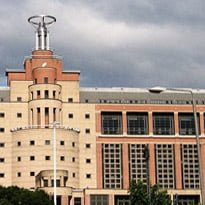The NHS Commissioning Board is looking for someone with “significant experience of developing and implementing national intelligence or informatics strategies” to become the national director of patient insight.
The new national director will also lead the IT function for the board, which is being set up in Leeds to shape commissioning in the reformed NHS and which will be held accountable for its performance.
The advertisement for the “very senior manager” role says its purpose is to “develop and deliver national strategies on public and patient engagement, intelligence and informatics.”
The successful candidate will have “significant experience of developing and implementing national intelligence or informatics strategies” and “extensive skills in the use of informatics to improve services.”
The information pack for candidates adds that the role is vital to the vision of the national board as “champion for patients and their interests.”
“It is essential that we understand the needs of patients and use this data strategically to help us refine and influence the shape of services,” it says.
“You will lead a directorate that will drive the use of sophisticated patient feedback and behavioural data, and interpret this to allow the board to tailor services increasingly to reflect both current and future needs.”
“In support of this, the director will lead the IT function for the board and will lead efforts to mine data which currently sits in silos across the NHS, in addition to pioneering the implementation of innovative data capture techniques.”
An introduction letter from NHS CB chief executive Sir David Nicholson says the successful candidate will need to use “sophisticated information on patients’ views and experiences to really understand their needs and help us shape services in response.”
The accompanying documents say the NHS CB will “engage constantly” with patients and have “high quality insight into what patients, carers and the public want and expect from NHS services.”
“It will oversee the extension of patient choice and the expansion of information available to patients,” the documentation says.
“The NHS CB will promote innovative ways of demonstrating how care can be more integrated for patients and will lead the way in engaging patients and the public in decisions about self-care to ensure it truly places patients, clinicians and carers at the heart of decision-making.”
The salary for the role is £165,000 a year; with more potentially available for an exceptional candidate. The position will be based in Leeds with travel throughout England. Applications close on 10 April with interviews held on 3 May.
The National Voices charity – an umbrella group for patient and service user organisations – has complained that the new job may go to somebody with more of an interest in informatics than in being a "true patient champion."
However, the joint chairman of the BMA and RCGP’s joint IT committee, Dr Paul Cundy, expressed the opposite concern. He told EHI the new role did not put enough importance on IT in the NHS.
“The NHS now is completely dependent on IT, [the NHS CB] should have a chief clinical information officer or something,” he said.
Dr Cundy said the patient insight role was dependent on good data. However, he argued the IT element of the job in itself was so big that it would be difficult to share it with anything else.
“What you get out depends on the quality of the systems you put in and then on the quality of the people using those systems," he said. "There needs to be someone responsible for providing the systems that can enable those systems to extract the data."

